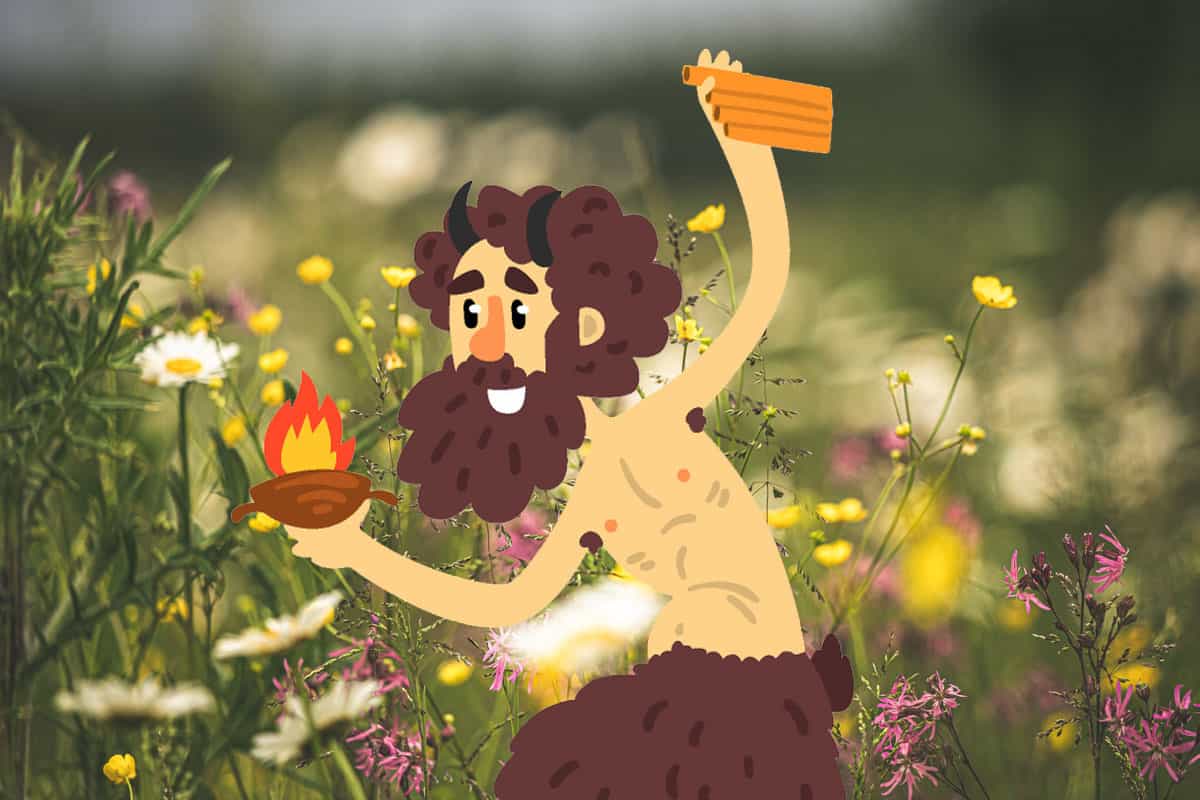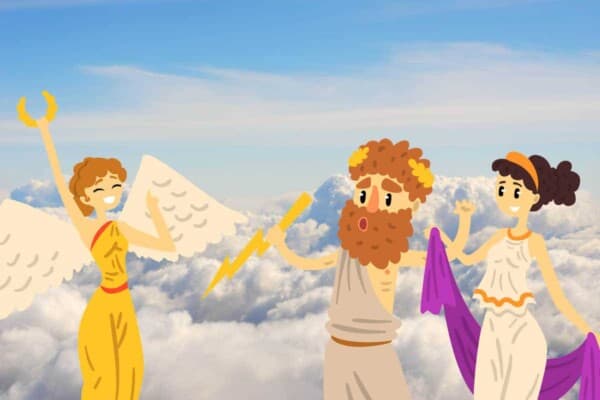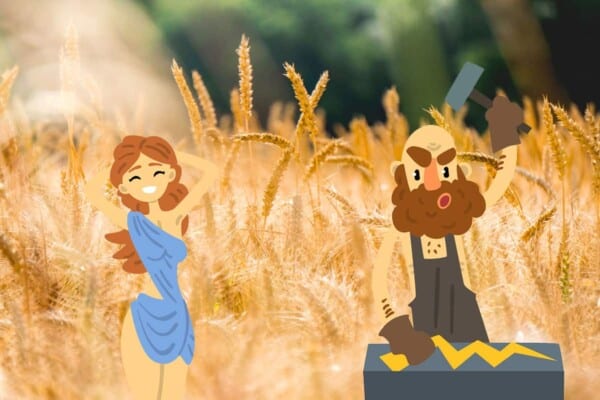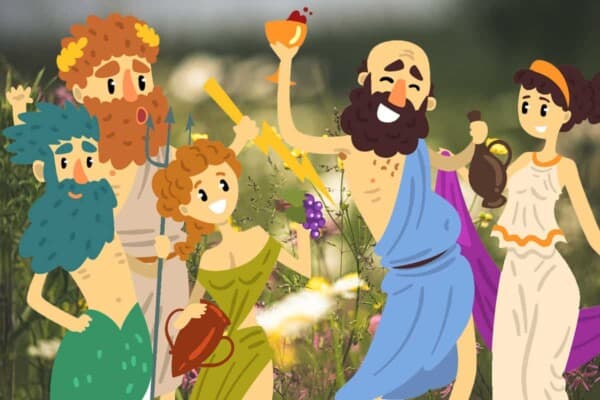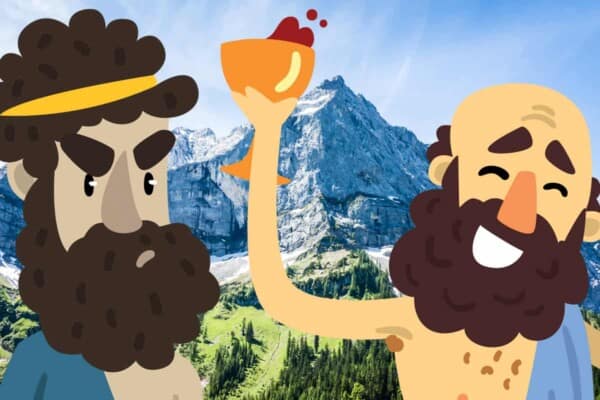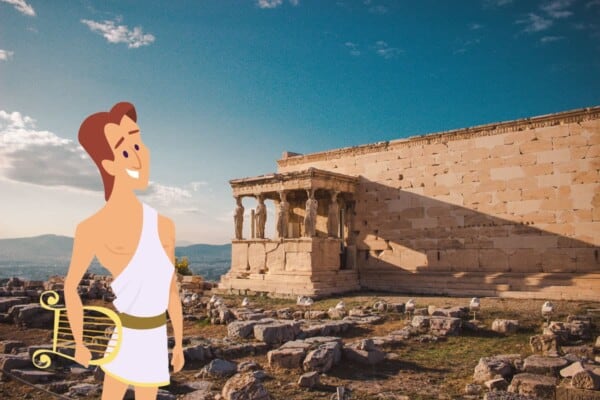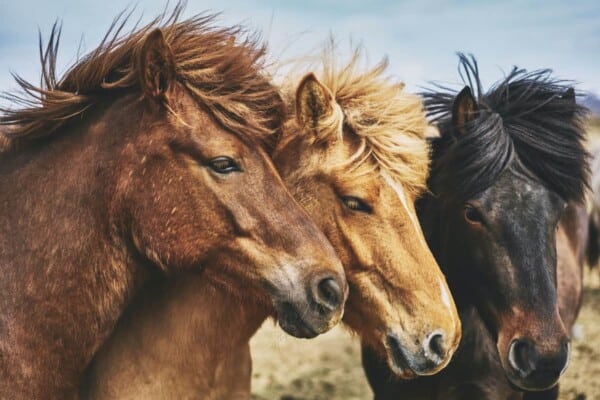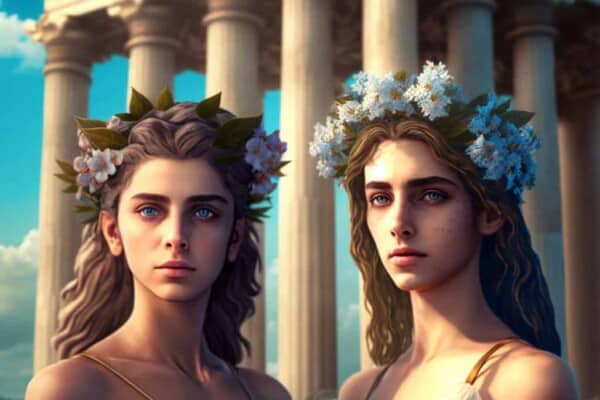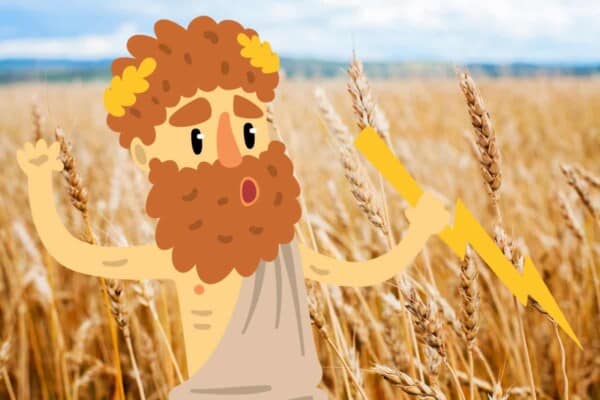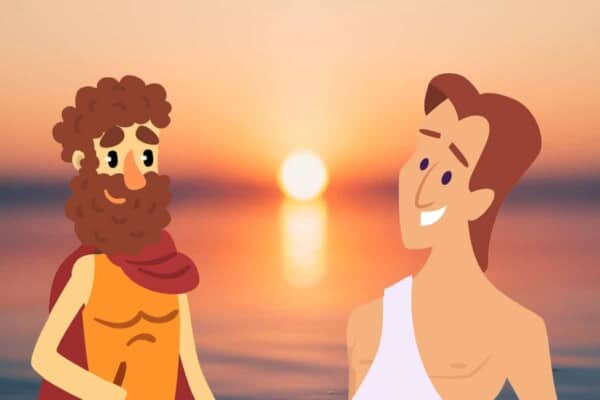Pan was an Ancient Greek nature god who was so ancient that he was one of the only gods to ever permanently die. His legacy spreads through religions as he is related to the Horned Man figures in Celtic myth and many other religious legends.
The following facts place Pan in the context of the mythology which birthed him. They explore exactly the role he played in Ancient Greek myth, and the many sources which describe his origins. As well, they focus on the key question: what happened, after all, when the great god Pan was dead?
Interesting Facts about Pan
1. Pan’s name meant all
Pan (Πάν) was the god of the wilderness, shepherds, music, nymphs, flocks, mountains, fertility, and many other areas. In some ways, he was seen as the root of everything. His name is also a prefix which passed into English in words such as pandemic (all-people), pandemonium (all-demons), panic (from the terror he caused), and pansexuality (all-sexual).
2. In most accepted mythology, Hermes was Pan’s father
However, Pan’s parentage is mixed throughout Ancient Greek history, and in many cases, he is considered older than any of the Olympian gods and therefore an ancient nature spirit. The following table shows some of the most common parents of Pan.
| Father | Role | Mother | Role |
| Hermes | Olympian god of travel, messages, thievery, travelers, and heralds | Dryope | Wood nymphs or Dryads and daughters of Dryops. |
| Penelope of Mantineia | |||
| Oneis | A nymph | ||
| Apollo | Olympian god of medicine, music, the sun, prophecy, and hunting | Penelope of Mantineia | As above |
| Zeus | King of the Olympians, the god of thunder, the skies, and the heavens | Hybris | A nymph, goddess, or spirit of insolence and hubris |
| The Proci | The 108 suitors of Penelope | Penelope, queen of Ithaca | A human and wife of the hero Odysseus |
3. Pan traveled in the retinue of Dionysus along with small versions of himself
These were called Paniskoi and acted the same way as satyrs.
4. He had the hind legs of a goat and was horned
He was the father or brother of the satyrs, half-goat men who were nature spirits
5. An aspect of Pan was raised with Zeus by Amalthea and battled Typhon
Aegipan, who is Pan, Pan’s son, or Pan’s father was also fostered by Amalthea. During the attack of Typhon, Aegipan fought alongside Zeus by letting out a scream that sent the enemy forces running in terror.
6. Pan sexually desired and was spurned by many nymphs
Echo, the spurned lover of Narcissus, was an object of his affection, but she spurned him. Pan either cursed her, killed her, or had two daughters with her. Syrinx, a nymph and companion of Artemis, ran from Pan’s advances and was turned into a reed. He cut the reeds and used them to make the first pan pipes. Finally, the nymph Pitys turned herself into a pine tree rather than concede to his attentions.
7. The word ‘panic’ comes from Pan’s terrible screams if people woke him from his naps.
These cries would frighten the heart of anyone, be they Titan or god or man.
8. Pan is often said to have learned to masturbate from Hermes
Though this was a joke from Diogenes, it’s a myth that endures – the fertility god taught to pleasure himself by his own father, then teaching the shepherds in turn.
9. Women who had sex with many men were known as ‘Pan girls’
This euphemism implies that Pan’s voracious sexual appetites somehow affected them
10. Pan once made love to the moon
Selene, the personification of the moon, became attracted to Pan when he used a sheepskin to hide his goat half. He made love to her in the woods.
11. Pan permanently died during the reign of Tiberius, according to Plutarch
The death of Pan is often associated with the transition from the pantheistic religions of Ancient Rome and Ancient Greek to the advent of Christianity. ‘The great god Pan is dead’ has become a favorite phrase of poets.
12. There was a whole swarm of Pans depending on the myth
Some of these were considered Pan’s sons, while some were aspects of Pan. Some of the most significant are listed below.
| Name | Father | Mother | Role |
| Kelaineus, Argennon, Aigikoros, Eugeneios, Omester, Daphoenus, Phobos, Philamnos, Xanthos, Glaukos, Argos, and Phorbas. | Pan | None given | These twelve sons of Pan helped Dionysus in his famous war against the Indians |
| Nomios | Hermes | Penelope of Mantineia | A shepherd, lover of nymphs, and musician |
| Agreus | Hermes | Sose | A prophet and hunter |
| Aegipan | Pan or Zeus or Apollo | Aix | A full-goat version of Pan |
| Sybarios | Krathis, shepherd boy | A female goat | An Italian version of Pan |
13. Pan was associated with two Roman gods: Faunus and Silvanus
Faunus was the father, husband, or brother of Fauna. Both were forest gods and prophets, and Faunus could give visions of the future in people’s dreams. Silvanus was a god of trees, flocks, woods, and wild trees. He also played the syrinx, the equivalent of pan pipes.
14. He was originally an Arcadian god who would help on hunts
If the hunt went badly, the Arcadians would whip his statue
15. He once challenged Apollo to a music contest
The sheer audacity was shocking, but more shocking was when, though Apollo won, one of the judges dissented and awarded the contest to Pan. Apollo retorted by giving the judge, Midas, donkey ears.
Final Thoughts
Pan is often considered very separate from most Greek mythological stories. He’s become a creature of folk myth, combined and conflated with gods from many other religious origins. However, his role in mythology is interesting precisely in that he is so ancient and mysterious – maybe more than anyone.
Contents
- Interesting Facts about Pan
- 1. Pan’s name meant all
- 2. In most accepted mythology, Hermes was Pan’s father
- 3. Pan traveled in the retinue of Dionysus along with small versions of himself
- 4. He had the hind legs of a goat and was horned
- 5. An aspect of Pan was raised with Zeus by Amalthea and battled Typhon
- 6. Pan sexually desired and was spurned by many nymphs
- 7. The word ‘panic’ comes from Pan’s terrible screams if people woke him from his naps.
- 8. Pan is often said to have learned to masturbate from Hermes
- 9. Women who had sex with many men were known as ‘Pan girls’
- 10. Pan once made love to the moon
- 11. Pan permanently died during the reign of Tiberius, according to Plutarch
- 12. There was a whole swarm of Pans depending on the myth
- 13. Pan was associated with two Roman gods: Faunus and Silvanus
- 14. He was originally an Arcadian god who would help on hunts
- 15. He once challenged Apollo to a music contest
- Final Thoughts

